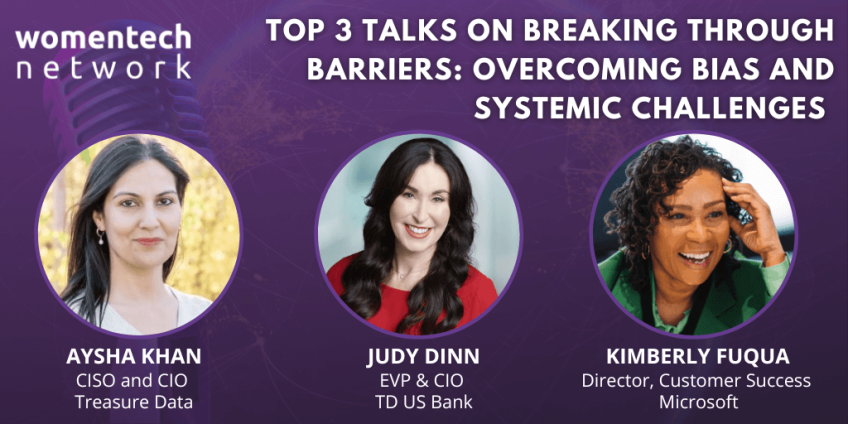How to be a Rockstar in your new job? by Mamta Suri
How to Be a Rock Star in Your New Job: A Comprehensive Guide
Starting a new job is like unraveling a new chapter in your life. It's exciting, sometimes nerve-racking, and filled with endless possibilities. In this new era wrought by the global pandemic, remote and hybrid work modes have introduced new challenges into the mix. In this guide, we'll share tips and strategies to help you excel in your new job, be it remote or in person.
Before the Interview: Preparation is Key
The first step towards landing your dream job is preparation. This may sound like an obvious tip, but there are nuances to it, especially with many interviews taking place remotely.
One crucial aspect is a thorough technology check. Ensure your sound, lighting, and connectivity are up to par. Do mock interviews with friends, family, or college resources if you're a recent grad. Google's "Interview Warm-up" tool, powered by AI, can help by providing five questions based on your professional background.
Aside from technical preparation, also spend time to understand the company you're interviewing with. A thorough review of your interviewers' LinkedIn profiles also wouldn't go amiss.
During the Interview: Making an Impact
During the interview, pay attention to your setup and the interviewer's. Ask for clarifications, maintain a positive attitude, and ask informed, relevant questions. Connect with the interviewer—ask them questions, respond to their provocations, use their name in conversation and, always with a smile!
After the Interview: Patience and Persistence
After the interview, the ball switches court. It's time to connect on LinkedIn, send a thank you email, and follow up diligently. Remember, it's not just about securing the job but also about building and maintaining professional connections.
Striving at Your New Position
Understanding Expectations and Priorities
Once you've landed the job, it's important to clarify your duties and manage your priorities. Speak to your manager to understand day-to-day duties and set 30,60,90 days goals based on your conversation. Remember to always prioritize working towards the right goals rather than loading up on busy work.
Exceling at Work
Be a Team Player
Excelling at your job involves more than just being good at what you do. It's equally important to be a team player. Be reliable, transparent, and maintain a growth mindset, appreciating and giving credit where it's due.
Create Relationships
Business is all about people. Cultivate relationships with your peers, superiors, and subordinates. Invest time and energy into these relationships – set up one-on-ones, share about yourself, and use open-ended questions.
Take Initiative and Continue Learning
If you find yourself with spare bandwidth, don't hesitate to take on new tasks, ask questions, innovate, and be an active participant in your professional ecosystem.
Wrap Up
By following these tips and embracing change, you'll not just survive in your new job but excel beyond expectations. You'll carve out a niche for yourself where you're known for your skills, expertise, and most importantly, your ability to work as part of and lead a team.
Feel free to reach out if you have any questions. Good luck as you embark on this exciting new chapter!
Video Transcription
All right, let's get started. So this session is about how to be a rock star in your new job. My name is Manta Suri and I'm senior engineering manager at Work Day. I also founded and leading South Asians er G group at Workday.I've been in the industry for 20 years and I've been part of work there for seven years. And um as you know, the current environment with the pandemic has changed the working landscape, rules of engagement in the works space have changed when it comes to interviewing on boarding and surviving the job process. So let's get started on how to excel in your new job, whether it's remote or in person. So today we'll be talking about how to land that job. How do you strive at work once you have that job? How do you excel? And then if there is any questions, I'll be happy to answer them. So how do you land that job? So there are certain things before the interview and the first thing is that make sure you prepare and it sounds very simplistic, but I do wanna mention some of the tips that you have to do before the interview uh which is make sure you prepare and this means to the technology check, uh sound le lighting, all of those things, do mock interviews with your friends, family or you know, if you're a recent grad, you also have resources within your college, do make use of it.
And there's a new tool from Google. It's called Google interview warm up. It's very cool. Uh It asks you five questions based on the area that uh in your professional background. And it's all powered by A I. You can also use Google or screen uh screencast to record you and get feedback. So make sure you prepare and you do mock interviews and research the company and the interiors. Um I've had candidates who don't really know what the company. Um I work at what it does uh And what products it has. It's very basic information that you can get from the company's website. There is no reason not to know it and make sure your linkedin profile is up to date and also review the profiles of your interviewers. Um I do want to mention some Zoom tips and this could be, I'm calling it Zoom tips, but it could be anything from uh any interview platform that the company is using and most common ones are Zoom Google Meet. Uh But there could be other ones and some of them have virtual backgrounds.
Some may not and make sure you test it out, you log in before you uh you know, before the day of the interview and speaking of backgrounds, make sure you have a professional background or blur your background if your interview platform allows it. And if uh if your your platform does not have or your browser doesn't support it, make sure you have a professional looking background behind you or a plain wall that would do also make sure there's no clutter uh, location is very important. Make sure you're gonna be in a location where no, you're not going to be disturbed. So if you have, if you're sharing your place with kids, roommates or pets, uh, make sure you put a note on the door or behind your monitor or your laptop, uh, where it says do not disturb, lighting is equally important. And, um, uh, a lot of times, uh, you know, I've had candidates where they're actually sitting in dark and that does not give a good impression. So try sitting near a window with natural lighting. Uh, if you have a laptop, you can go to different places in your house and see where you have the best lighting and, uh, or if you need to add any extra lightings, make sure you do it towards the side or on the top.
Not to be, uh, not to your back, it will make you either look washed out or it can actually make you, you know, look darker than your background. So uh make sure that those are very basic things that you take care of them and make sure your sound is good. Most people know this by now, but uh in case you're having disturbance, uh, or you don't have good mic in your computer, make sure you can invest in good headphones and this is something I wanna talk about, make sure there is your position properly in the camera. And a lot of times I've had people where they are too low in the camera, so only their head is shown um or they are either too forward or too back. So make sure that you follow this triangle rule where your head should cover most of the screen, but there should be a little bit of uh background from uh coming up. So, you know, follow the triangle rule and make sure you're not leaning uh too much forward or slouching shoulders back, relax. And all of these are basic things and these are just equivalent of having a good handshake for in person interviews.
This is what we have to do to make a good handshake in the remote interviewing um during the interview. So one of the things you can do is confirm your setup is working is just ask, hey, can you hear me, see me? OK, and make sure you're hearing and seeing them fine. Also, uh a lot of times the other person may be on mute or the uh connection is not good. So it's better to do it at the starting rather than, rather than doing it in the middle when they're asking questions. So it also gives a chance to know if the other person has their set up correctly, uh create a connection with the interior act like you genuinely like the interior and he she is already your colleague. It does make a difference. Um And it comes out in your energy and smile, use the interior's name, uh pronounce it correctly. Ask for clarifications throughout the interview if needed and the especially true for uh technical questions and also some of the other questions that they are vague for a reason.
So make sure you're asking clarifications or if you read the interviewer's body language, that that's not exactly what they were expecting, just ask them, hey, am I answering your uh correct uh question? Did I understand it correctly or do you want to have uh let me give you a different example. So, you know, change co uh course correct if needed and have a positive attitude. Uh It's very, very important and keep 3 to 4 questions handy to ask the interviewer. And if you can ask those questions related to something they have already mentioned during the interview, even if it's more, that's even more effective. All right, after the interview. So after the interview, maintain that connection, uh send a thank you email letter, send them a connection on linkedin.
It's a good networking tool because if you got the job, then there, your colleague is already on your professional network. And even if you didn't get the job, you know, it's good to maintain that connection. They may be able to refer you later for a different position or they may change companies or departments and you, they think that you may be better fit there and follow up if you haven't heard from them, Uh follow up once a week is ok, don't do it too often. Um But follow up with a specific action, something like, yeah, I really enjoyed our conversation. I'm looking forward to the next steps if you can let me know when I can expect an answer so that you also know not, you know how much longer they're gonna take because some companies they do take a long time. Uh They may take uh you know, one month or more to go through all of the candidates. So it just depends. So ask them, hey, let me know when I can expect an answer. Ok. So those are some of the things you can do before the interview during the interview and after the interview. So after all of that hard work, you finally get the job you're selected and you're feeling great.
Everyone is congratulating you, your friends are happy, your family is happy, your cloud on cloud nine and the night before your new job, you think there is going to be a red carpet. Welcome. Coming in the morning, you get to the new job and guess what? There's no red carpet. And this is especially true if you're remote. Um, you finally enter the building either in person or virtually. And now what do you do? So that's what we're gonna talk about next. How do you strive at a new position? So, the first thing is, know what you're expected to do. I know it sounds simplistic and you may be asking, what do you mean? I know what I'm hired to do. Yes, you read the job description and maybe you briefly talked about doing the interview regarding the job duties, but that's not the complete picture. First of all, the job descriptions that the company use are a lot of them are, you know, generic based on the organization.
Secondly, by the time you interviewed and by the time you joined the priorities may have shifted for the company for the team. So to know what you're expected to do, simply ask your manager get on the same page with him or her, ask him or her. Hey, what are my day to day duties? What does it take for a person in this role to be successful? And he asked these open ended questions. It's very important that you are on the same page with your manager. And so that you know that you're working on the right things. So once you know what you're expected to do and have had that conversation, write down your priorities and then check in with your manager again in a week or in your next one on one. And if you don't have a one on one set up on the calendar, ask your manager for a regular one on one and then review these priorities with him or her. Uh Simply saying, hey, based on our last conversation, I gather that these are the top five priorities for me and this start the conversation and then, you know, um you guys can discuss that if this is in the right order or what needs to be tackled first or what is the, you know, what is not the focus right now, but maybe long term term.
So this gets the discussion started and then you can know and make sure you're focusing on the right priorities rather than just some busy work. And once you know, the priorities then create a 30 60 90 day goals, some companies may do it as part of the process. A lot of the companies don't do it but make sure you do it. And for example, if one of the priorities was that, um you know, improve the performance by 50% ask for clarifications. What does it mean by that? Um Are you gonna be working on by yourself or are there gonna be the whole team working on it? Who else can you ask about this? What else has been tried, when is this expected to be completely done and then see if you can have intermediate milestones, you know, performance by 10% 25% to reach that 50% goal. And then at each of those situations, then you can um again, uh refine the 60 days goals and the 90 day goals. So it is very effective and this makes sure that you and your manager are aligned and you're working on the right things. So first thing, know what you're expected to do. And secondly, is know and focus on the priorities. It's very important to work on the right priorities and set goals for yourself for the 1st 30 days, 60 days and 90 days. OK.
And then how do you excel at work? So once you're, you know, doing a um you know what you're expected to do, how do you then start excelling? First thing is be a team player, be someone your team can count on and say what you do and do what you say, be transparent if you commit to something, do it. So people can count on you and keep a growth mindset. Don't whine or complain if there are issues and there usually are then try to brainstorm and collaborate on how you to solve it together, be solution oriented and appreciate and give credit. If people have been helping you take the whole team together, it's not just about you, it's the whole team and it's very important you have that team work mindset, be a strong performer. So now once you know what your uh priorities are and you're focusing on the right priorities, see how you can ex exceed those expectations, build the deep expertise in a certain area, go above and beyond. Spend that time to go deeper in an area. And then it's your chance to give back help other people mentor other new hires either formally or informally. And it could be about the project. It could also be just like some uh tips on some apps, some zoom tips.
So start sharing your knowledge with others and be known for the person in that subject area that people feel comfortable to come and ask you questions. It's one thing to know the subject but also be approachable enough that people feel comfortable to come to you. So you get a good reputation within your team, within your organ, within your company and create relationships. Business is all about people. And if you're working remotely or in hybrid um environment, it's even more important to be intentional. So create and maintain those connections.
Set up one on one meetings with your peers, your manager, ask your manager, who else should you meet? Smile, especially if you're remote. You don't have to be serious all the time and share appropriate things about yourself, your hobbies, family, et cetera, ask open ended questions to the other person. Be actually inquisitive and curious and use their names in conversation in the Dale Carnegie uh book. They have mentioned that someone's name is the sweetest sound to them in any language. Try it out in any conversation today. Uh If you're having a conversation, just say uh that person's name in the middle of a conversation and see, you know, um you'll get a subtle reaction from them. So, you know, um you have to be intentional about it and then take the initiative. Uh If you are already excelling at your current duties and have bandwidth for more, then only do it. And if you do take on something new, um then make sure that other things still apply, meet with your manager um ask him or her, you know, and be realistic about how long it would take and where does it fit in the list of priorities?
So don't go for it if you're, if you're already too bogged down with your current work, this is something if you have bandwidth to take on because remember, you still should be able to commit that if you decide to take it on and, you know, innovate, ask questions, volunteer for other things and build your network.
So go get to know people beyond your team, you know, um invite folks to coffee or uh just a virtual walk or in person walk to learn about their group and what their team does. You never know. People move groups. Uh They move companies and uh this is your chance to build your network and you may be looking for another job within your company uh and try out maybe a different area. So again, this is not about what you can get from them. This is about actually being an inquisitive and getting to know people outside of your uh out of your immediate circle. OK. And those are my five tips for excelling at work, Be a team player, be a strong performer. Make sure you're building the right relationships within your team.
Take the initiative, go above and beyond and build your network outside of your uh current team. So that's how you be a rock star at, at your new job. First, you have to land a job and then you have to strive at work. You have to actually do the job that's assigned to you and then you can go above and beyond and excel at work uh with that. Um I do have some time for questions. Let me know if you want me to answer anything. Thank you. An an Anastasia. Oh There goes my tip about pronouncing the name, right? So, sorry about that. Um Yeah, the 30 60 90 day expectations. That's good. I'm glad you liked it. And another, another thing I would say is that you're meeting like-minded people here. So, you know, this is another way to create connections outside of your company. Uh connect with people that you're meeting here in this conference, share your linked information with each other, create those groups, create those informal uh coffee sessions once in a while. So, and this is like one of those uh you can create your own uh like-minded group with people and you can all cheer for each other as you're growing up the ladder. OK. So there are um a couple of questions. Um The first one is how can I be most helpful to people who are above me in the latter?
So, um sorry, so couple of things you can do is um you know, if it's um if it's your manager, then just uh have the conversation with um uh with your manager in your one on one that, hey, is there anything I can be? Uh Is there anything I can do to help you with your goals? Um And is there anything different you'd like me to be doing if it's come of levels above you? Then um you know, you can still ask for those one on one. Every once in a while with your uh skip level or a couple of levels above and uh share your progress, share what you've been working on and then ask them for their feedback and ask them. Is there anything I can do to help you? Um just ask those um questions and uh and it's OK if you feel like you're not uh much of help, uh just making those connections are good. Um And uh this is, you know, this also starts to make those connections with someone who are above your current title level. Um One other question is, would you kindly share the screen on 30 60 90 day? Uh Yeah, absolutely. So the the 30 60 90 day goals are something where you can uh you have to work with your manager and say that uh the first thing is, you know, you have to make sure that you have the right priorities.
So you know what you are expected to do and you have the right priorities in order. So once you have that, then you can break them into 30 60 90 day goals. So one of the examples I gave is if one of your goals, uh one of your priorities is that improve the performance by 50%. Uh Well, is it for the whole app? Is it for this feature? Are you gonna be the only one working on it? And based on that you can create your uh the goals for these different uh days. So if you're the only one working on it and it's the whole app that they want you to improve the performance, of course, it's gonna take longer. So you have to break it into milestones. Uh But then if there's other people working with you, then see if you can create milestones along the way. How are you gonna divide up the work? And this also shows that you are uh you know, you take the initiative, you know how to approach you're organized, you know, how to approach uh uh task and break it down into smaller tasks. So, and you're not going to know everything for the 6090 day goals, but at least you can start with the 30 day goals. And then after you've been in the company for 30 days, then you can refine your 60 day goals and 90 day goals.
I hope that's helpful, Cindy. So I think we are at the um at the time. So thank you so much for being here and uh uh feel free to get in touch with me if you have any more questions uh later on. And uh yeah, absolutely. I really enjoyed uh sharing uh some of my tips and I wish you all the best in your futures and enjoy the rest of the conversation. Thank you.





